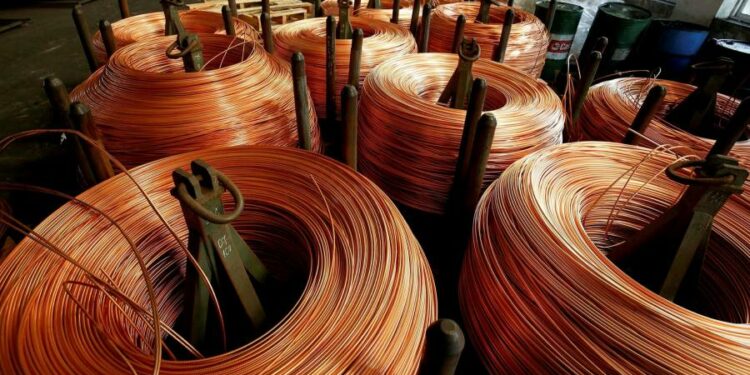Just as central banks have been getting out their big guns to fight levels of inflation that had caught them all unawares, global financial markets have sprung another surprise. Rate-setters had been criticised for neglecting accelerating prices in favour of support for growth. Now, it seems possible that they may find themselves accused of the opposite.
Over the past few weeks, many of the commodity prices that were at the centre of the current inflationary burst have slumped dramatically. The Brent crude oil benchmark briefly fell below $100 this week, down one-fifth from a month earlier. Copper and iron prices are both one-third lower than their spring peaks. Iron is at its cheapest so far this year, copper cheaper than at any time since January 2021. Timber prices have see-sawed almost all the way back to pre-pandemic levels.
Even some food commodity prices, whose rise was among the most tragic repercussions of Russia’s war on Ukraine given the latter’s key role as a supplier of agricultural goods, have been coming back to earth. Wheat now trades at the same price as right before the invasion, and almost 40 per cent below the peak in May.
These slides have been going on for some time, and some have accelerated recently. The explanation does not seem to reflect any alleviation of the disruption of physical deliveries relative to normal demand. Many physical markets remain stressed. The differing behaviour of natural gas prices testifies to that. In the US, they have slipped by one-third in the past month. In Europe, whose gas supplies from Russia are slowly but surely being closed by Vladimir Putin, they are soaring again.
Not all globally traded commodities have slumped, moreover. Corn and soyabeans, for example, trade at prices near record highs. But the big shifts that are being seen mean investors have clearly become much more cautious of betting that certain key commodity markets will remain tight.
Fear of inflation, in other words, is being replaced by fear of recession, as investors price in the risk that demand will cool fast and force vendors to cut prices. This is matched by how market-derived inflation expectations, too, are dropping quickly. Those who want to rationalise their fears need not look far for reasons: long-term borrowing costs have risen in many markets in anticipation of stronger central bank actions.
Even so, an unadulterated recessionary view may be premature. US job growth slowed last month but remains much higher than normal and keeps lifting American workers’ participation rate. The US labour market certainly does not appear to be signalling a recession. And inflation remains far too high for comfort on both sides of the Atlantic.
Even the commodities that have been on a downward path in recent weeks could rocket again tomorrow. Most of them swung upwards in the second half of this week. But neither a recession nor a return to record high commodities prices would be good for economic or political stability — and nor would wild price fluctuations reflecting flighty investor beliefs in one or other prospect.
At the very least, the recent market movements muddle an already complicated picture. Central bankers, especially, know that monetary policy works with a lag. If the supply shocks that triggered today’s broader inflation were to undergo a reversal, the tightening cycles launched by most central banks in recent months would hit their economies at the worst possible time.
None of this means central bankers have been wrong to tighten monetary policy. But it does make it even harder to know whether the extent and pace of their tightening have been well judged.











